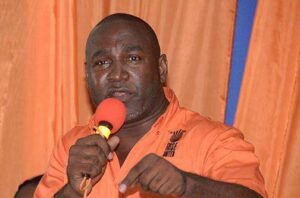
Tariff turmoil
JREA exec requests tariff refunds for lithium battery imports
PRESIDENT of Jamaica Renewable Energy Association (JREA) Alex Hill says he will make a written request to the Government of Jamaica (GOJ) for the reimbursement of Common External Tariffs (CET) paid on the importation of lithium-ion batteries during the month-long reinstatement of the regional tax.
The JREA president is also insistent that the GOJ should ask the Caribbean Community Secretariat to refund all payments of the CET, after the Council for Trade and Economic Development (COTED) reversed the suspension of the tax at a meeting held from November 27-28, 2023, in Georgetown, Guyana.
“The Jamaican Government should ask Caricom to reimburse us [local solar energy companies], or whatever they need to do, because we need to get that money back,” he told Jamaica Observer in an interview Monday.
His appeal comes after the Ministry of Industry, Investment and Commerce (MIIC) announced last week that “the Caricom Secretariat has authorised the suspension of the Common External Tariff (CET) in respect of the importation of lithium-ion batteries into Jamaica”. The ministry further indicated that the suspension of the CET would take effect from February 2, 2024 to February 1, 2025, for a quantity of 240,000 lithium-ion batteries.
However, Hill is raising concern about the one month in which Jamaican companies ended up paying the tariff on imported batteries — during which time the JREA lobbied the GOJ for a resolution on the matter.
The tariff became payable because COTED, in its meeting last year, indicated that it would not approve the suspension of CET on lithium-ion batteries, noting that “Barbados indicated its ability to supply 240,000 lithium-ion batteries…as requested by Jamaica, for the period 1 January 2024 to 31 December 2025”.
As such, prior to the Caricom Secretariat’s intervention, local solar energy companies would have had to pay the tariff during the month of January and on the first day of February. It is for this reason Hill is mounting his appeal to the GOJ, arguing that the CET should not have been paid in the first place.
He has laid some of the blame at the foot of COTED for reinstating the tariff without conducting proper due diligence on the capacity of Barbados, or any company from that island, to supply the region with lithium-ion batteries.
“Why apply the tax while adjudicating the claim? This is illogical. COTED should not [have] unanimously approved the tariff at the meeting without any evidence. And what are the punitive measures applied to the company, or member state that represents the company, if the claim is proven false?” the JREA president asked.
Answering his own question Hill said, “If their [Barbados] claim turns out to be false, we the Jamaican populace would be paying this 20 per cent tax for no reason. As a punitive measure COTED should then quantify the total value of the tax paid during this period of confusion and apply it against Barbados, and the GOJ should reimburse or credit (retroactively) the importers of lithium batteries for renewable energy use into Jamaica since 1st January, 2024.”
Hill said that JREA will continue to work with the MIIC; Ministry of Foreign Affairs and Foreign Trade; Ministry of Science, Energy, Technology and Transport; and Ministry of Finance and Planning on the issue to ensure proper representation at the regional level.
However, his JREA colleague and Vice-President Jason Robinson has also raised concern about the handling of the one-month period of paying the tariff on lithium-ion battery imports, pointing out that confidence in the Government’s approach to addressing similar matters is now eroded.
“The lag in the Government’s response forced stakeholders of the [renewable energy] industry to pay the 20 per cent tax for the entire month of January associated with the purchase of lithium batteries, thus undermining confidence in the commitment to champion the renewable energy agenda. Stakeholders of the renewable energy industry are now left questioning if their best interests are truly being represented,” Robinson wrote in his blog on the company’s website, solarbuzzjamaica.com.
Robinson has also questioned why the GOJ has not disclosed the name of the company which, at the COTED meeting, promised to satisfy regional demand for the lithium-ion batteries. This, he said, indicates a lack of transparency on the GOJ’s part and a “tone-deaf” approach, given the “significant financial implications incurred by Jamaican solar companies as a result of the unexpected duties.
“The proactive move from the Jamaican [G]overnment should have been an immediate response followed by full disclosure, and that it is making every effort to refund solar companies the taxes paid by them during the month of January. While we acknowledge the reinstatement of the tariff exemption for 2024 and the relief it provides, the absence of accountability from the [G]overnment and a plan to reimburse impacted industry players undermines their stated support for the renewable energy sector,” the JREA vice-president continued.
He added that without a proper plan to prevent a recurrence of similar events, players in the renewable energy sector are uncertain what will take place when the tariff suspension ends in February 2025.
























